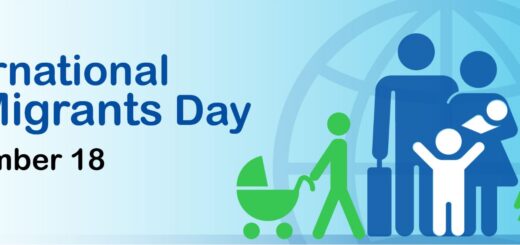International Day of Education: Empowering Minds, Building Futures
The International Day of Education, observed on January 24th each year, is a global celebration of the importance of education in promoting peace, development, and prosperity for all. Established by the United Nations General Assembly in December 2018, the International Day of Education recognizes the transformative power of education in empowering individuals, strengthening communities, and advancing sustainable development worldwide. In this blog, we will explore the history, significance, and impact of the International Day of Education, as well as ways to promote access to quality education for all.
The Importance of Education
Education is a fundamental human right and a key driver of social and economic development. It empowers individuals with the knowledge, skills, and capabilities they need to lead fulfilling lives, participate fully in society, and contribute to the well-being of their communities. Education also plays a critical role in promoting gender equality, reducing poverty, and fostering peace and stability in the world.
The Goals of the International Day of Education
The International Day of Education aims to raise awareness about the importance of education as a fundamental human right and to mobilize action to ensure inclusive and equitable access to quality education for all. It provides an opportunity to highlight the challenges and opportunities facing the global education system and to advocate for policies and initiatives that promote lifelong learning and skill development for people of all ages.
Education in the Sustainable Development Goals
Education is central to the achievement of the United Nations Sustainable Development Goals (SDGs), a set of 17 global goals adopted by all UN Member States in 2015 to address the most pressing challenges facing humanity. Goal 4 of the SDGs specifically calls for “inclusive and equitable quality education and lifelong learning opportunities for all.”
By promoting universal access to education, eliminating gender disparities in education, and improving the quality of education, the SDGs aim to ensure that every individual has the opportunity to reach their full potential and contribute to sustainable development. Education is also recognized as a cross-cutting issue that underpins progress across all of the SDGs, from ending poverty and hunger to promoting health and well-being, gender equality, and peace and justice.
Challenges Facing Education Today
Despite the progress that has been made in expanding access to education in recent decades, many challenges remain. Millions of children around the world still lack access to basic education, particularly in low-income and conflict-affected countries. Gender disparities in education persist, with girls often facing greater barriers to education than boys due to factors such as poverty, cultural norms, and gender-based violence.
Quality of education is another significant challenge, with many schools lacking adequate resources, infrastructure, and trained teachers. In addition, the COVID-19 pandemic has exacerbated existing inequalities in education, disrupting learning for millions of students and widening the gap between rich and poor, urban and rural, and girls and boys.
Promoting Access to Quality Education
To address these challenges and ensure inclusive and equitable access to quality education for all, concerted action is needed at the global, national, and local levels. Governments, civil society organizations, the private sector, and international partners all have a role to play in advancing the cause of education and supporting the achievement of the SDGs.
Some key strategies for promoting access to quality education include:
- Investing in Education: Governments should prioritize education in their budgets and allocate sufficient resources to ensure that all children have access to free, quality education. This includes funding for schools, teacher training, educational materials, and infrastructure.
- Addressing Barriers to Access: Efforts should be made to identify and address the barriers that prevent children from accessing education, including poverty, discrimination, disability, and displacement. This may involve targeted interventions such as scholarships, school feeding programs, and initiatives to promote gender equality and social inclusion.
- Improving the Quality of Education: Schools should strive to provide high-quality education that meets the needs of all learners and prepares them for success in the 21st century. This includes recruiting and training qualified teachers, adopting innovative teaching methods, and integrating technology into the classroom.
- Promoting Lifelong Learning: Education is a lifelong process that extends beyond the classroom. Efforts should be made to promote lifelong learning opportunities for people of all ages, including adults, refugees, and marginalized communities. This may involve providing adult education programs, vocational training, and skills development initiatives.
Conclusion
The International Day of Education is a reminder of the transformative power of education in shaping the future of individuals, communities, and nations. As we commemorate this day, let us reaffirm our commitment to ensuring that every child has the opportunity to receive a quality education, regardless of their background or circumstances. By investing in education, we can unlock the potential of millions of people around the world and build a brighter, more inclusive future for all.





 Subscribe to our channel
Subscribe to our channel